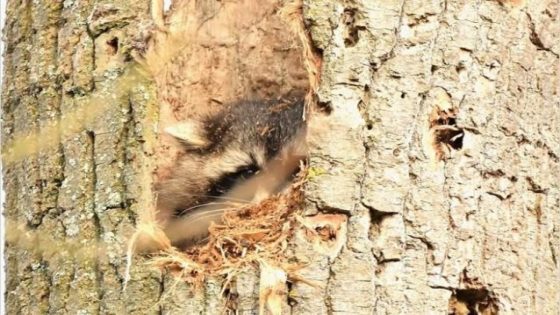A raccoon sighting in Demerbroeken nature reserve has sparked interest among wildlife enthusiasts. On February 17, 2025, a local resident captured the moment of this exotic animal perched on a hollow tree. What does this mean for local wildlife and residents?
- Raccoon spotted in Demerbroeken nature reserve.
- Increasing sightings of raccoons in Belgium.
- Raccoons originate from America, spreading in Europe.
- History links raccoon spread to WWII escapes.
- Local authorities assessing raccoon management options.
- Raccoons adapt well to local environments.
The Growing Raccoon Population: What You Need to Know
Have you ever wondered how an exotic species like the raccoon ended up in Belgium? The recent sighting in Scherpenheuvel-Zichem highlights an ongoing trend as these animals adapt well to different environments. Their increasing presence raises questions about their impact on local ecosystems and human interactions.
Understanding Raccoons: Their Origins and Behavior
The history of raccoons in Europe dates back to World War II when they were either released or escaped captivity. Today, they thrive in various climates, including Belgium’s. Known for their adaptability, these creatures are omnivorous scavengers that often rummage through trash cans looking for food.
The Impact of Raccoons on Local Ecosystems
As raccoons continue to establish themselves in new areas, understanding their effects on local ecosystems is vital.
- Raccoons can compete with native species for food resources.
- Their scavenging habits may lead to increased waste issues.
- They can carry diseases that affect both wildlife and humans.
- Monitoring their population helps manage potential conflicts with residents.
What Residents Should Do When Encountering Raccoons
If you encounter a raccoon near your home or while exploring nature reserves, here are some tips:
- Avoid approaching or feeding them; keep a safe distance.
- Secure trash bins to prevent scavenging activities.
- If necessary, report sightings to local authorities for tracking purposes.
- Educate neighbors about coexisting safely with wildlife.































